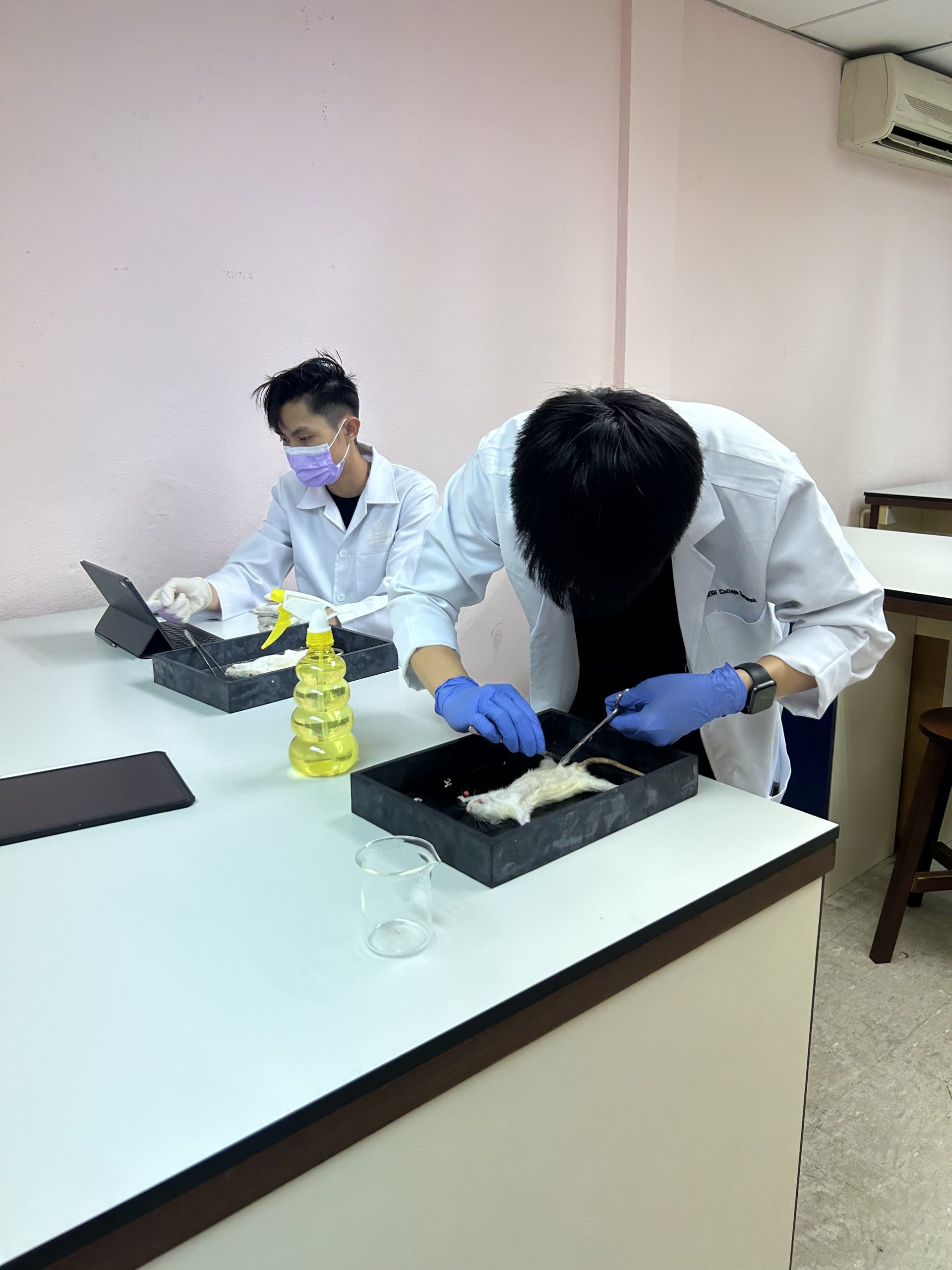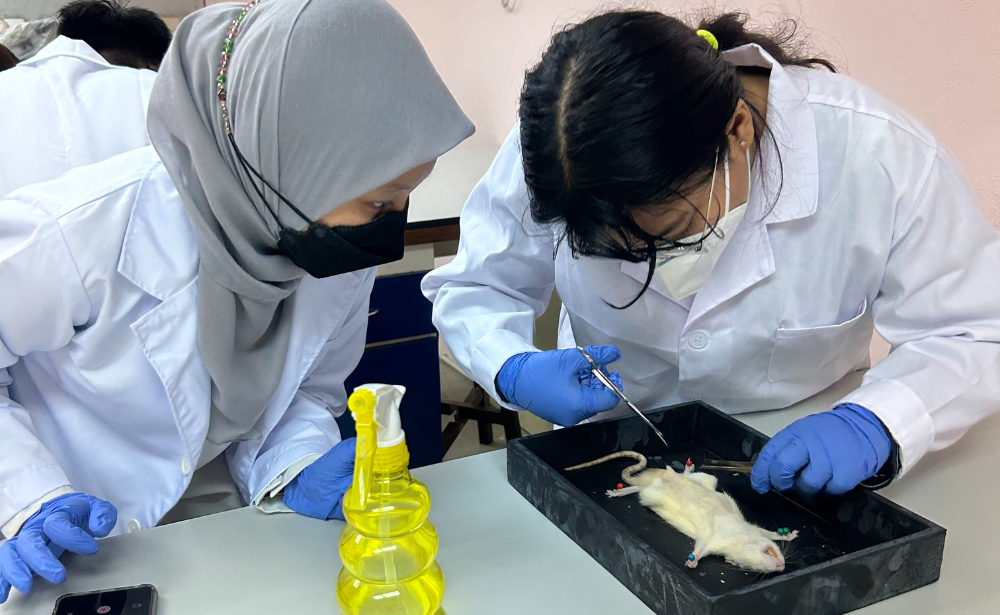Clinical Biochemistry, Medical Microbiology, Medical Parasitology, Hematology, Immunohematology, Cytology, Histopathology, and other disciplines are studied in medical laboratory technology. Rats are important in some of these areas because their physiology and genetic makeup are so similar to humans’. While human and rat biology differ, the similarities provide students with a powerful and versatile mammalian system to identify human-related diseases.
Animal studies are commonly used to answer complex questions about disease progression and other biological mechanisms of a whole living system that would be unethical, morally unacceptable, or technically impossible to conduct on human subjects. Rats account for approximately 95% of all warm-blooded laboratory animals. These and other species’ contributions help students answer questions about human cells, tissues, and organs.
A group of Diploma in Medical Laboratory Technology students from SEGi College Sarawak recently purchased rats for a Histopathology experiment. Each student dissected two different kinds of rat organs for tissue processing, such as dehydration, clearing, and embedding. Tissue blocks were then created for further tissue research. Students learned techniques that will be useful in their clinical placements and future careers as a result of this experiment.
For many years, the use of animals in scientific research has been a source of contention. The use of animals in medical laboratory technology studies, on the other hand, is critical for providing valuable insights into human diseases and treatments. According to a European Commission report published in 2019, the use of animals in scientific research is still necessary for the advancement of medical knowledge and the development of new treatments. The report also emphasised the importance of reducing, refining, and replacing animal research, while ensuring that it is done ethically and with the utmost care for the animals involved.
Overall, the use of rats in medical laboratory technology research is critical for providing students with a thorough understanding of human biology and disease. Students can learn skills and techniques that will help them in their future careers as medical laboratory technologists through these studies.



